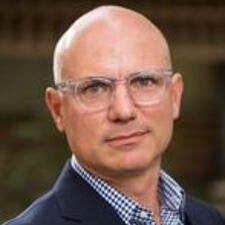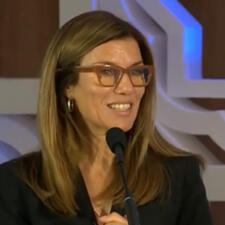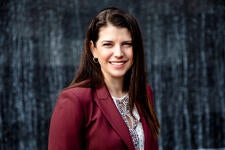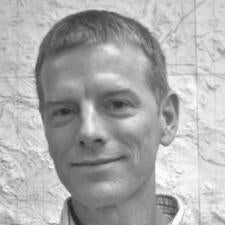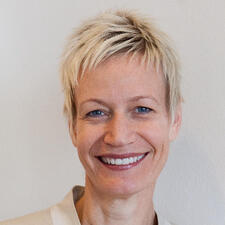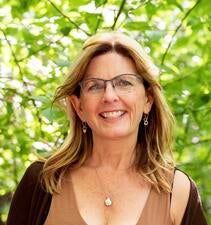Seven UC Riverside faculty members are recipients of the prestigious Fulbright fellowship and will be traveling to locations such as Australia and Vietnam to teach and conduct research.
The selected faculty members are Mark Alber, David Biggs, Sherine Hafez, Kimberley Lakes, Kurt Schwabe, Christina Schwenkel, and Jacqueline Shea Murphy.
They are among around 800 U.S. scholars chosen for their academic merit and leadership potential for the 2023-24 academic year of the Fulbright Program, the U.S. government’s flagship international educational exchange program.
Fulbright scholars engage in cutting-edge research and expand their professional networks, often continuing research collaborations started abroad and laying groundwork for future partnerships between institutions.
They join a network of thousands of esteemed scholars, many of whom are leaders in their fields. Fulbright alumni include 62 Nobel Prize laureates, 89 Pulitzer Prize recipients, 78 MacArthur Fellows, and 41 who have served as a head of state or government.
Learn more about UCR’s awardees below.
Mark Alber, distinguished professor of mathematics
Alber’s research combines mathematical modeling and experimentation, allowing researchers to perform virtual experiments and yielding insights into biological mechanisms in plants and animals. His interdisciplinary group at UCR has developed models of embryo development, plant growth, blood clot formation and deformation, and bacterial swarming.
With Fulbright support, he will visit the Mathematical Institute at Leiden University in the Netherlands. There, he and his collaborators will study how genetic, mechanical, and physical interactions between stem cells in an animal embryo or in a growing plant contribute to tissue form, size, function, and maintenance.
Alber is the director of UCR’s Interdisciplinary Center for Quantitative Modeling in Biology. He earned a doctorate in mathematics at the University of Pennsylvania, Philadelphia, and was elected as a fellow of the American Association for the Advancement of Science in 2011. He joined UCR in 2016.
David Biggs, professor of history
Biggs will study the history of shoreline urbanization in Southeast Asia during the Fulbright fellowship. Southeast Asian cities like Bangkok, Jakarta, and Ho Chi Minh City are megacities built largely out of coastal mangroves and with climate change, these areas are in danger of submersion under rising seas.
“My research examines these coastal urban areas to better understand how people built these communities in relation to nearby mangrove and coastal ecosystems as well as what areas have retained unique ecological, architectural, and cultural values that may merit historic preservation,” Biggs said. “I’ll be working with historians and mangrove scientists at Universiti Sains Malaysia in Penang as well as making short visits to universities in Bangkok, Jakarta, Kolkata, Manila and Ho Chi Minh City.”
Biggs is a professor of Southeast Asian and environmental history. He earned a doctorate in history with concentrations in modern Southeast Asia, environmental history, and historical geography at the University of Washington. His research broadly explores the environmental history and techno-politics of Vietnam and Southeast Asia in the 19th and 20th centuries, and his applied work contributes to projects concerned with such issues as toxic waste cleanups, de-militarization, and various public history projects associated with climate resiliency and biodiversity efforts as well as California-based studies with his students.
Sherine Hafez, professor of gender and sexuality studies
Hafez was awarded a Fulbright research and teaching grant in Sicily, Italy. Her project is titled, “Difference and Belonging in the Mediterranean: Arabs and Muslims in Sicilian Material Culture.” It is an ethnographic project that focuses on how Sicilians engage, relate, and perform their Arab and Muslim past in festivals, puppet theater, artifacts, and historical re-enactments.
“This will be an opportunity to study the constitutive hybridity of Mediterranean cultures and how co-existence may forge lasting empathies and interconnections that span centuries,” Hafez said. “The project underscores the interconnectivity of Mediterranean cultures and debunks culturalist assumptions that view ‘Islam’ and the ‘West’ as separate and oppositional.”
Hafez’s research focuses on Islamic movements and gender studies in Arab, Middle Eastern and Mediterranean cultures. She is the author of several volumes including her most recent award-winning book “Women of the Midan, The Untold Stories of Egypt’s Revolutionaries,” which discusses Egypt’s revolutionary women and gendered corporeal resistance in the Middle East.
Kimberley Lakes, professor of clinical psychiatry
Lakes is the recipient of a Fulbright Global Scholar Award, which provides flexible support for individualized research programs across the world. Fewer than 20 Fulbright Global Scholar Awards are given each year. She will serve as a visiting full professor at University College Dublin in Ireland in the fall of 2023 and summer of 2025 and conduct research in Cape Town, South Africa, in the summer of 2024.
Lakes will collaborate with scientists in Ireland and South Africa to study neurodevelopment within diverse health care, educational, community, and early intervention systems. She believes there needs to be critical reflection of contextual realities in which child development is promoted.
“It is critical to increase our knowledge of the facilitators of and constraints to child neurodevelopment at multiple levels — individual, interpersonal, sociocultural, and environmental — particularly among children with neurodevelopmental disorders in under-resourced communities who are at increased risk for poor outcomes,” she said.
Her background includes research, teaching, and clinical practice focused on mental health and child and adolescent psychology. She received a doctorate in psychology at the University of Wisconsin, Madison. In 2018, she came to UCR from UC Irvine, joining the Department of Psychiatry and Neuroscience at the School of Medicine.
Kurt Schwabe, professor of public policy
During his Fulbright fellowship, Schwabe will travel to the Murray–Darling basin region of southeast Australia, home to the tributaries of the Murray River, the country’s longest river.
Schwabe will collaborate with Australian scientists and water managers to better capture and store water as the planet warms. This work is expected to help policy experts in Australia and California recharge depleted aquifers, establish groundwater banks, and create water markets to reduce the impacts of drought associated with climate change by developing institutional structures for water storage.
Schwabe is associate dean and chair of the public policy department at UCR. His research focuses on economic issues associated with water use and water affordability, agricultural production, urban water conservation, ecosystem services, and environmental regulation. Schwabe received a bachelor’s degree in mathematics and economics at Macalester College, a master’s in economics from Duke University, and a doctorate in environmental economics at the North Carolina State University.
Christina Schwenkel, professor of anthropology
Schwenkel will be using her Fulbright fellowship to conduct research in Vietnam. Her project, “Sensing the City: Multisensory Ethnography of Urban Life in Hồ Chí Minh City” is motivated by her interest in the urban sensorium and sensory encounters with infrastructure. The goal of the project is to understand how embodied sensations shape the ways people experience and navigate Hồ Chí Minh, and how those sensory experiences are managed and disciplined.
Schwenkel is collaborating with the Department of Anthropology at Vietnam National University, partnering with a team of emerging scholars consisting of graduate students and lecturers to design a series of walking sensory tours that bridge anthropological theory and methods.
“The primary objective of these walks is to generate a collective sensory inventory of urban life to better understand the sensorial dimensions to urban inequalities. This initiative, which encompasses research, training, and mentorship, seeks to promote greater understanding and exchange between the United States and Vietnam,” said Schwenkel.
Schwenkel’s research focuses on transnationalism, historical memory, aesthetics, and visual culture in Vietnam. Her recent historical ethnography on the reinvention of the city in the aftermath of U.S. bombing raids, “Building Socialism: The Afterlife of East German Architecture in Urban Vietnam,” published with Duke University Press in 2020, received three book awards.
Jacqueline Shea Murphy, professor of dance studies
Shea Murphy received a Queen’s University Belfast Scholar Award in Creative Writing through the Fulbright Program. She will be heading to the Seamus Heaney Centre at Queen’s University in Belfast, North Ireland, where she will undertake two separate but overlapping writing projects.
“One is revision of a speculative fiction historical novel for young adults, set in 1846 Ireland. The other is a study of what Irish contemporary dance shows about negotiating space with each other, and what possible futures live on in its grounded, diasporic, migratory, pleasurable enactments,” said Shea Murphy.
In both projects, Shea Murphy will engage with questions around bodies in physical relation, bodies in ancestral relation, and centuries of bodies emigrating and immigrating from a geographic location — the island of Ireland. Both projects turn to how artistic creation can envision — and offer tools for — living beyond coloniality and modernity and the agricultural and climate changes those structures have created, including those changes propelling the massive migrations of past, present, and future.
Shea Murphy focuses on writing about dance-making by Native American and Indigenous dance artists. She earned a doctorate in English from UC Berkeley, a master’s in fiction writing from The Johns Hopkins University Writing Seminars Program, and a bachelor’s from Barnard College of Columbia University. She is the founder of Indigenous Choreographers at Riverside, an annual conference where Indigenous dance artists can come together to share work, connect with each other, and — along with invited scholars, UCR students, and community members — discuss the social, political, and historical implications of indigenous dance.

